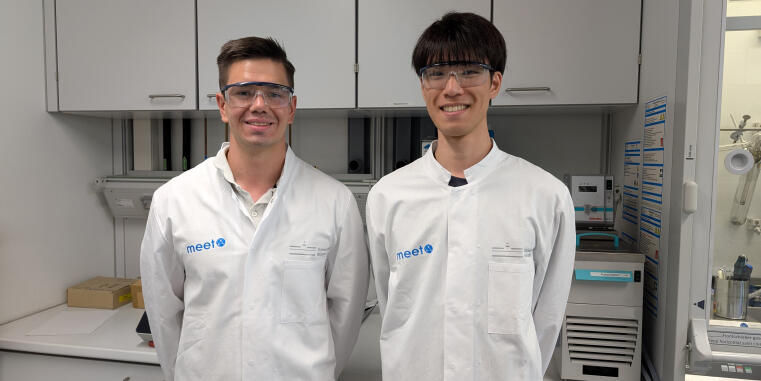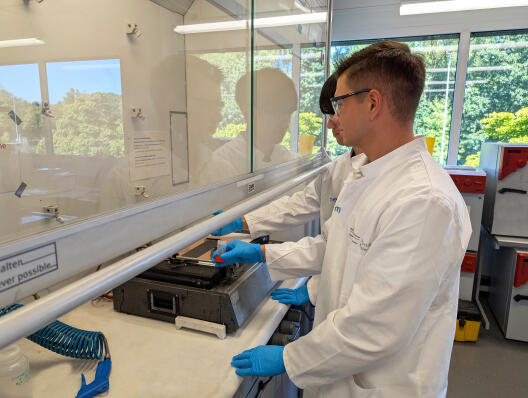“You Get in Touch with People You Would Not Have Met Otherwise”
The ASPIRE project (Adopting Sustainable Partnerships for Innovative Research Ecosystem) aims to promote Japan's participation in the international top research community. Therefore, international researchers – from Germany, for example – have the opportunity to pursue their work at Tohoku University in Sendai, Japan. When PhD student Silvan Stuckenberg learned about the project during a guest lecture by the Japanese professor Hirotomo Nishihara at MEET Battery Research Center, he did not hesitate for long. Just a short time later, he was already working in Nishihara's research group for three months. In this interview, he explains the research he conducted there and why he recommends other students to study abroad.

What was your research topic at Tohoku University?
Silvan Stuckenberg: Prof. Nishihara's working group develops an additive for silicon electrodes. Due to the structural similarity between lithium metal, which is the focus of my research in Germany, and silicon, we were able to transfer some of my concepts and further improve the energy density and cycle stability of the battery cells.
And what exactly is your research focus in Germany?
Silvan Stuckenberg: I investigate the influence of highly concentrated electrolytes on different interphases, for example with lithium metal. For this purpose, I work in a joint project between the German Research Foundation (DFG) and the US National Science Foundation (NSF). Within the project, we are in close contact with our project partners of the University of Berkeley. Being able to think outside the box of my project and also collaborate with Japanese scientists has greatly advanced my research. This allowed me to examine silicon in more detail and transfer my previous results to this battery material.

Was the work in the laboratories in Japan different from the one in Germany?
Silvan Stuckenberg: The work in the laboratory is very similar to the work in Germany. Safety plays an important role in both countries. In Japan, however, there is a special focus on how to behave correctly during earthquakes. Unfortunately, these occur frequently there. I was not familiar with this in Germany.
Why do you recommend a stay abroad to students?
Silvan Stuckenberg: Because you get in touch with people you would not have not met otherwise. Working with my Japanese colleagues helped me to grow not only professionally, but also personally. I would therefore totally recommend a research stay abroad. You also have the opportunity to experience cultural characteristics at first hand.
Is there one in particular that you keep in mind?
Silvan Stuckenberg: Actually, the work culture. In Germany, we tend to start work earlier so that we have time for friends and hobbies in the afternoon and evening. In Japan, it is common to spend more time with colleagues and going out for dinner together. I am therefore all the more happy to revive this tradition in Germany with Keigo Wakabayashi from Tohoku University. He is working with us for several weeks at MEET Battery Research Center.
What else did you particularly like about Japan?
Silvan Stuckenberg: I can only answer: the food. Besides sushi, I often visited yakiniku restaurants with my Japanese colleagues. In these restaurants, you prepare your own food on a grill plate in the middle of the table.

